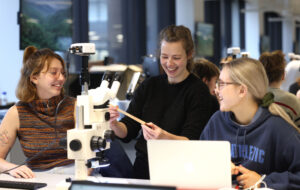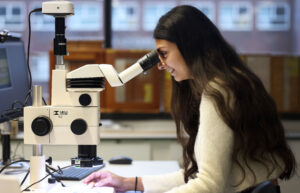How you'll learn
You will be taught through a mixture of lectures, practical classes, fieldwork, private study, and supervised project work. At the start of the first semester you will participate in a week-long residential field class in the UK, and in both semesters, lectures are supplemented by regular laboratory and computer practical classes.
During the course, you will develop key study skills, presentation skills, data handling and analysis skills, and group work. The combination of modules is designed to promote independent thinking, critical insight, leadership, team work and to give you a sound understanding of environmental issues (from global to local). The teaching strategy is designed to place a strong emphasis on data analysis and evidence synthesis.
How you're assessed
Assessment methods are diverse across the modules and include exams, assessed essays, laboratory and computer practicals, field assignments, group work, reports, oral presentations and dissertations. A few modules are fully assessed by a series of practical reports.
When possible, you will create assessments that simulate the sort of work you might produce when conducting research beyond master’s level such as consultancy reports, academic posters, abstracts and presentations, and dissertations which could be written as an academic paper or scientific/consultancy report.
In your third semester you will undertake your dissertation where you will be assessed on how well you demonstrate the ability to describe and interpret findings, synthesize different information sources to form coherent arguments and relate research outcomes.
Liverpool Hallmarks
We have a distinctive approach to education, the Liverpool Curriculum Framework, which focuses on research-connected teaching, active learning, and authentic assessment to ensure our students graduate as digitally fluent and confident global citizens.
The Liverpool Curriculum framework sets out our distinctive approach to education. Our teaching staff support our students to develop academic knowledge, skills, and understanding alongside our graduate attributes:
- Digital fluency
- Confidence
- Global citizenship
Our curriculum is characterised by the three Liverpool Hallmarks:
- Research-connected teaching
- Active learning
- Authentic assessment
All this is underpinned by our core value of inclusivity and commitment to providing a curriculum that is accessible to all students.









